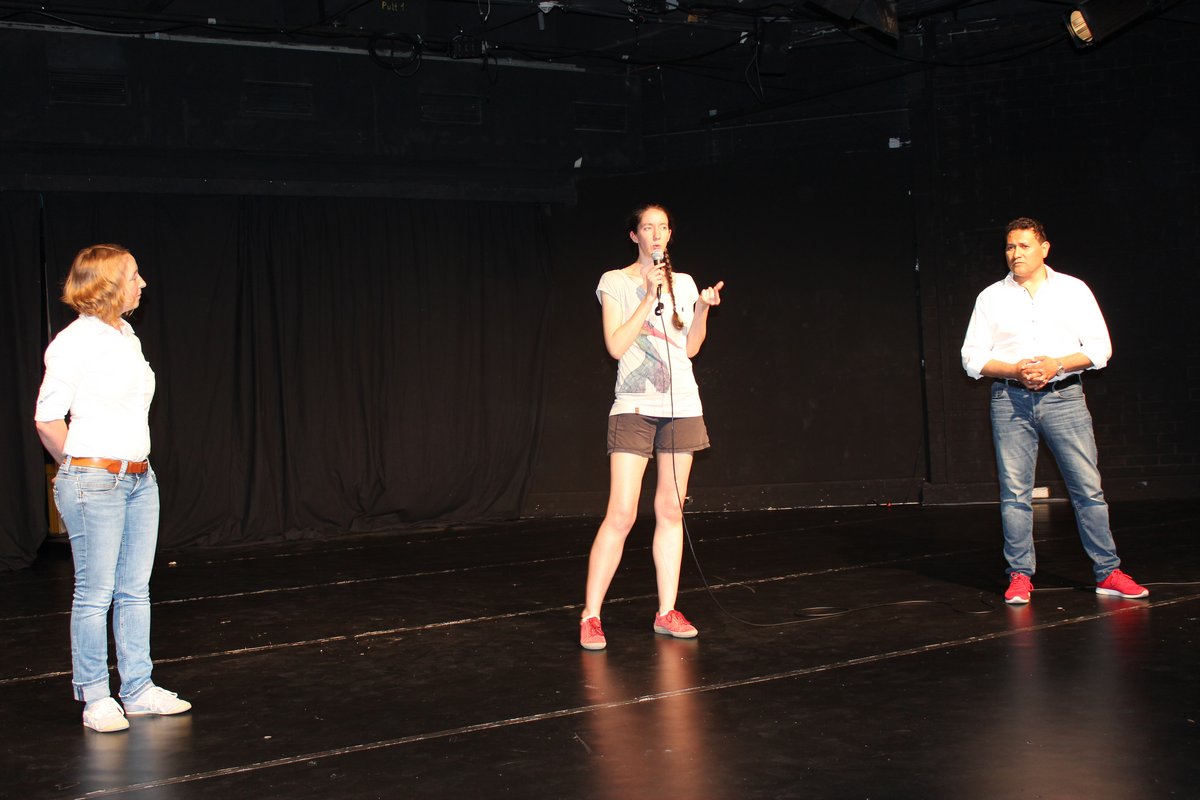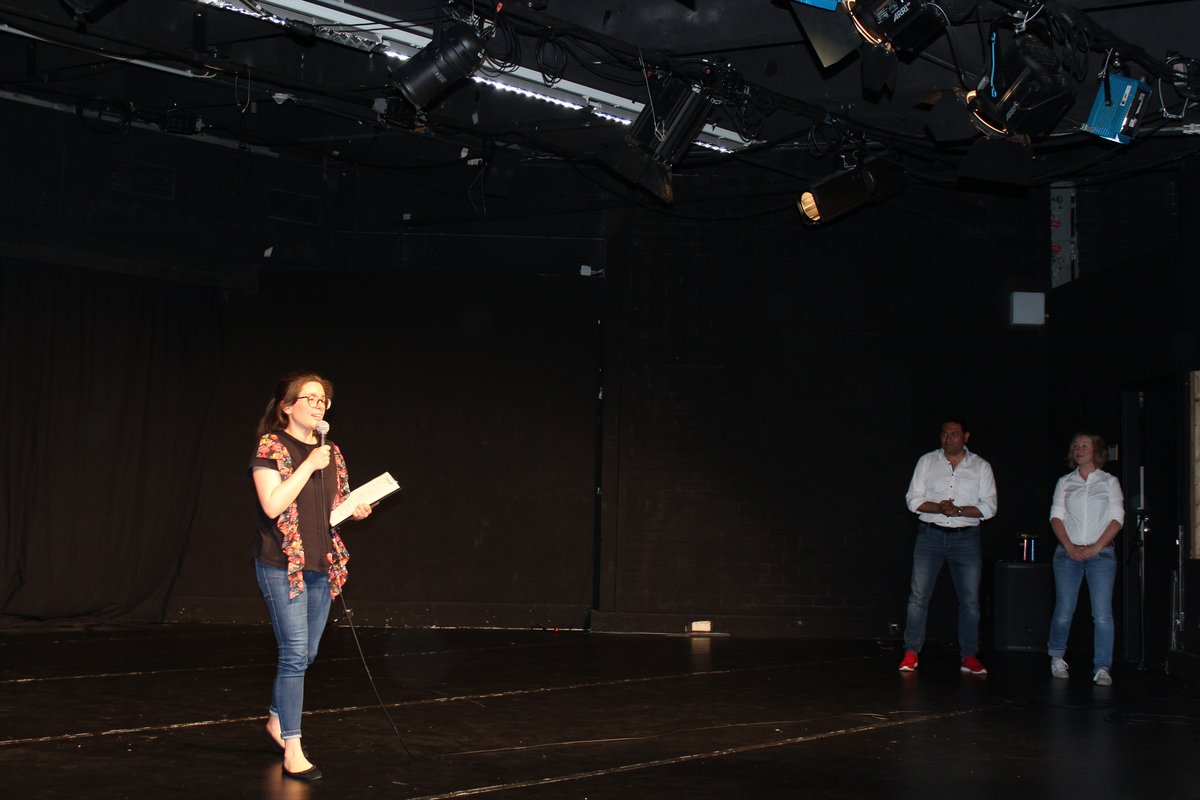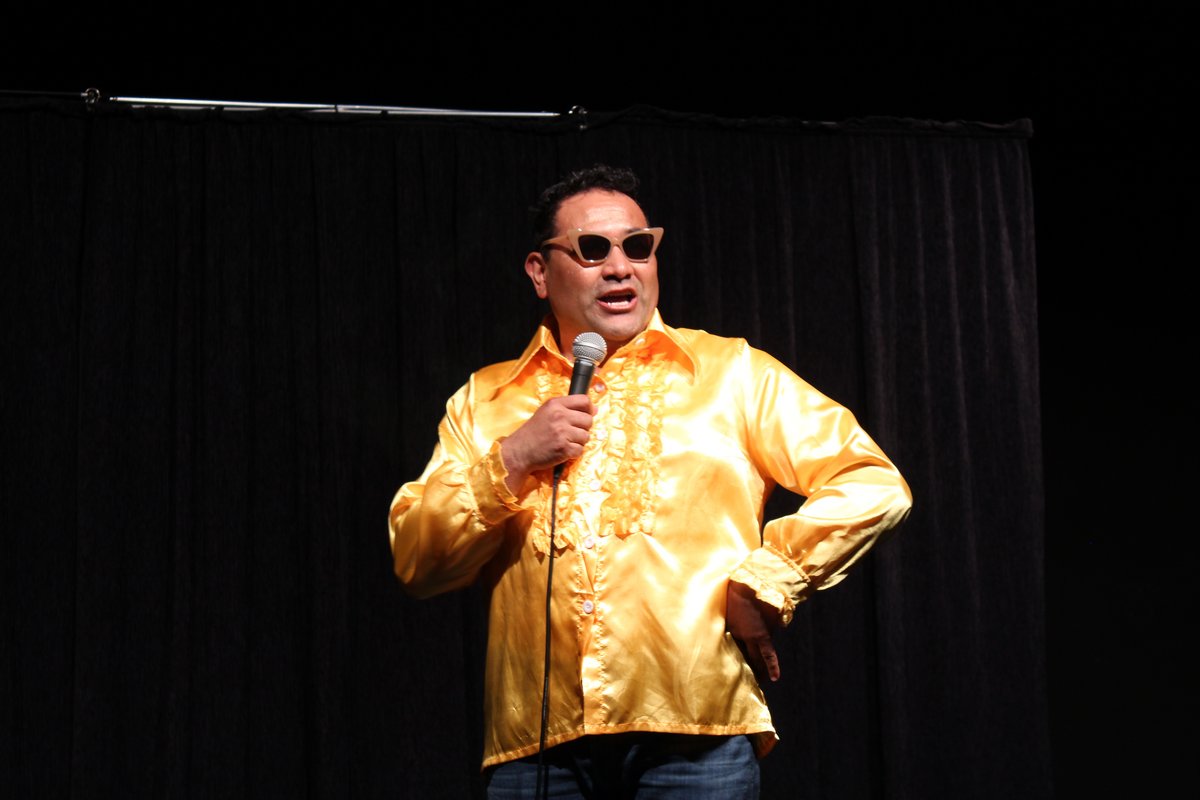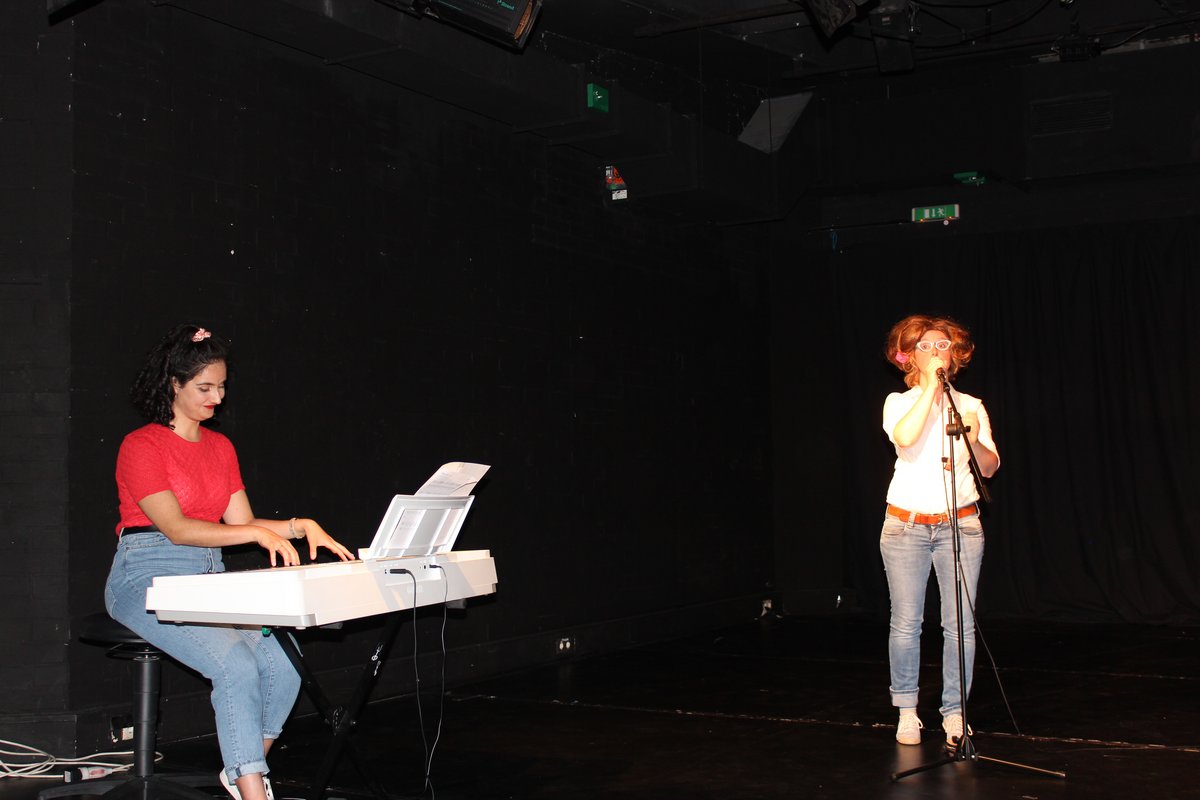Improtheater at Long Night of the Sciences
In the framework of the Long Night of the Sciences on 14 May, the Zukunftskolleg invited to an Improtheater entitled "Impro(ve) the future" with three of our fellows.
On Saturday, 14 May, the Long Night of the Sciences took place at the university, as well as at the Bodenseeforum, HTWG (Hochschule Konstanz - University of Applied Sciences) and PHTG (Pädagogische Hochschule Thurgau).
The Zukunftskolleg offered an Improtheater entitled "Impro(ve) the future" at the university's Studiobühne in which Gabriella Gall, Noelia Martinez Doallo and Jacob Bloomfield presented their research that was improvised by performers from the Improtheater Konstanz.
Starting point for the Improtheater were these abstracts:
Jacob Bloomfield
Tutti Frutti: Little Richard, Sex, Gender, and Transgression in America and Europe investigates the extraordinary career of musician Little Richard. Covering the years 1955-64, the project explores a wide range of facets regarding Richard’s career through its examination of a central question: how did the singer become one of the most successful figures in mid-twentieth-century popular music, achieving ground-breaking popularity with cross-racial audiences in the U.S. and Europe, while consciously predicating his persona on male effeminacy and the suggestion of same-sex desire?
Using Richard’s career, music, and image as a case study, I illuminate how post-war Western audiences interpreted gender nonconformity, sexual difference, black masculinities, contemporary popular music, and Americana.
Noelia Martínez Doallo
Is there a moral duty to participate in (Bio)medical research? Insofar as (bio)medical research has the potential of improving the life quality of the whole society, it is to be considered as an important scientific activity that should be upheld by everybody. Nonetheless, the existence of healthcare and pharmaceutical markets with a focus on making economic profit, along with certain ethically questionable practices, has led to the mistrust towards (bio)medical sciences practices in general, and (bio)medical research in particular. The advancement of (bio)medical sciences certainly requires collective efforts, as human testing exemplifies. Yet the construction of a genuinely fair scheme of cooperation requires the democratisation of (bio)medical sciences as a prior step, since all the parties involved deserve to be placed in conditions of material equality. Uncontroversially, a fair-minded scheme of cooperation just can be built upon the culture of the universal human rights, the theories of justice and the democratic values. In my postdoc research, I will set the main pillars of this enterprise from an interdisciplinary perspective, i.e. merging moral and political philosophy, law, economics and (bio)medical sciences in an effort to foster a holistic slant.
Gabriella Gall
Many animals live together in social groups and benefit from this community, for example, through reduced predation pressure or increased reproductive success. However, such a community also means that animals with different needs have to adapt to each other and compromise accordingly to remain in the group. To make and influence group decisions, many animals use acoustic signals. In my project, I seek to understand how the ability to coordinate with others and to influence others with their own signals evolves, what the mechanism of such coordination is, and how far individual differences in coordination ability affect animal survival and reproductive success. I am investigating these questions in pheasants and chickens because it is possible to raise, observe, and manipulate them in the laboratory under controlled conditions right from the egg and then either release them (in the case of pheasants) or keep them in the field (in the case of chickens) and thereby measure the effect of experience on animal survival and reproduction, particularly in the case of pheasants.




